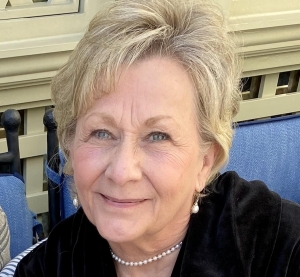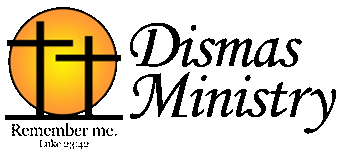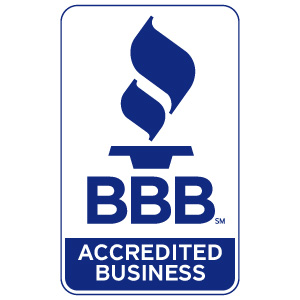Written by Joshua Stancil
This week we’re so pleased to have with us Deb Davis, who works with incarcerated men and women in the great state of Texas.
 Hi, Deb, it’s so kind of you to share some of your experience with us today. Where in the country are you, exactly?
Hi, Deb, it’s so kind of you to share some of your experience with us today. Where in the country are you, exactly?
My ministry work is in Austin, Texas, where I make regular visits to the Williamson County Jail and the Texas women’s prison.
How long have you been involved in prison ministry?
Over 20 years now.
Wow, that’s amazing. How did you initially get involved?
Well, to be honest, I have three generations of family members in prison. In 1997, my brother was arrested for trying to hurt his wife and was sentenced to 20 years. My family lives in Michigan, so of course that’s the state in which he was sentenced. It was too far away for me to go visit him on a regular basis, so I decided to start visiting inmates in the nearby Williamson County Jail in place of visiting him. That way I could, in a sense, remain united to him and his circumstances. It took a long time to get approved. There was a lot of paperwork, a background check, bureaucratic difficulties – it was a slow process. I had submitted my application in January and thought: This is great! I’ll be approved in time to visit at Easter! But, days and weeks and months went by with no word on my status. I started to wonder if God really wanted me to take this new path.
How did He let you know?
I go to daily Mass, and my husband and I are faithful 9:30 Mass attendees on Sunday. This one evening, we were at the Saturday vigil Mass, a rarity for us. After Mass, I prayed about the prison ministry: If you don’t want me to do this, Lord, please take away the desire for it. Later I walked out of the church and bumped into the guy who runs the men’s ministry. He looked at me and said, “You’re in!” The first day I entered the prison was on Our Lady’s birthday.
What is your approach to the inmates?
I let the guys know I’m Catholic. Years earlier, before starting prison ministry, I participated in a nondenominational bible study, which was enjoyable but not thoroughly Catholic. I’m a convert, so naturally I have an immense love for the Church. In my prison ministry, I’m Catholic all the way (laughs). I spend an hour or two each week in adoration before the Eucharist, and this helps sustain me in my work.
What do you take with you to the prison?
I take a satchel with a crucifix, holy water, prayer cards, and missalettes in Spanish and English. I visit on Fridays, and we do the readings for the following Sunday. I ask them to go over the readings again on Sunday, so they can really unpack the meaning. I want them to know that God loves them. If you don’t know God’s love, life is harsh and confusing. We can have all the rules of life and abide by them, but there’s no love in that. We need to encounter God’s love and mercy so that life can become human.
Are you ever approached by non-Catholics?
Oh yes, I get a lot of non-Catholics asking questions. It’s an opportunity to explain our faith and clear up the many misconceptions.
We know that prison ministry changes inmates. Has prison ministry changed you?
My birth family wasn’t religious. I didn’t have God in my life. But now I do, and I know the difference. I want the inmates to know the difference, too.
People involved in prison ministry are often met with cynicism: “You’re wasting your time; the inmates’ll never change.” What is your response to that?
I always tell them in a loving way that the men and women in prison are so often there because they don’t know God and are battling addictions. Men and women in prison aren’t radically different from the rest of us. I’m so often encouraged by correctional officers who tell me it’s so important for volunteers to show up. Volunteers make a difference.
How did you discover Dismas Ministry?
For 20 years, I’ve been trying to get help – rosaries, prayer cards, bible studies, etc. There’s so little for Catholic inmates. I even had a notice put in our parish bulletin asking for old holy cards, old paperback books, and old Catholic magazines. There’s a book cart that goes around the prison, and I noticed there was nothing particularly edifying in the selection. Eventually I was able to collect some books for them. In searching for help, though, I came across Dismas Ministry and they’ve been great. Bible studies are a particular need, and the women I minster to especially love the Dismas Ministry bible study.
Any closing thoughts?
Grandmas are important! (laughs) I hear inmates talk about moms and dads, of course, but I’m struck by how often I hear them talk about their grandmas. Grandmas are important!
 Joshua Stancil is a Dismas Ministry board member, a published author, and a native of North Carolina. A frequent speaker at restorative justice conferences in both America and abroad, his writing has appeared in Magnificat, Traces, and Convivium. He can be reached via joshua.stancil@drm.media.
Joshua Stancil is a Dismas Ministry board member, a published author, and a native of North Carolina. A frequent speaker at restorative justice conferences in both America and abroad, his writing has appeared in Magnificat, Traces, and Convivium. He can be reached via joshua.stancil@drm.media.



